By the Reins
Apsáalooke
Descendants of a large beaked bird
The interconnections of the Crow culture, and their relationship with the horse.
The crow tribe has always held a unique relationship between their people and the horse. The horse serves as a vital connection to their culture and their identity. It has always stemmed to many essential ways of life, including hunting, transportation, and kinship. However, in the 1920’s government policies that restricted the ownership of horses, greatly impacted their people. This resulted in the elimination of more than 44,000 horses that originally belonged to the tribe. Today, they are still fighting for their identity, and the solace that the horse brings to their lives. Families are attempting to revive rodeo for their children, to rekindle their cultural roots and traditions, that the horse has always represented.
Full story: https://nativenews.jour.umt.edu/projects/by-the-reins/
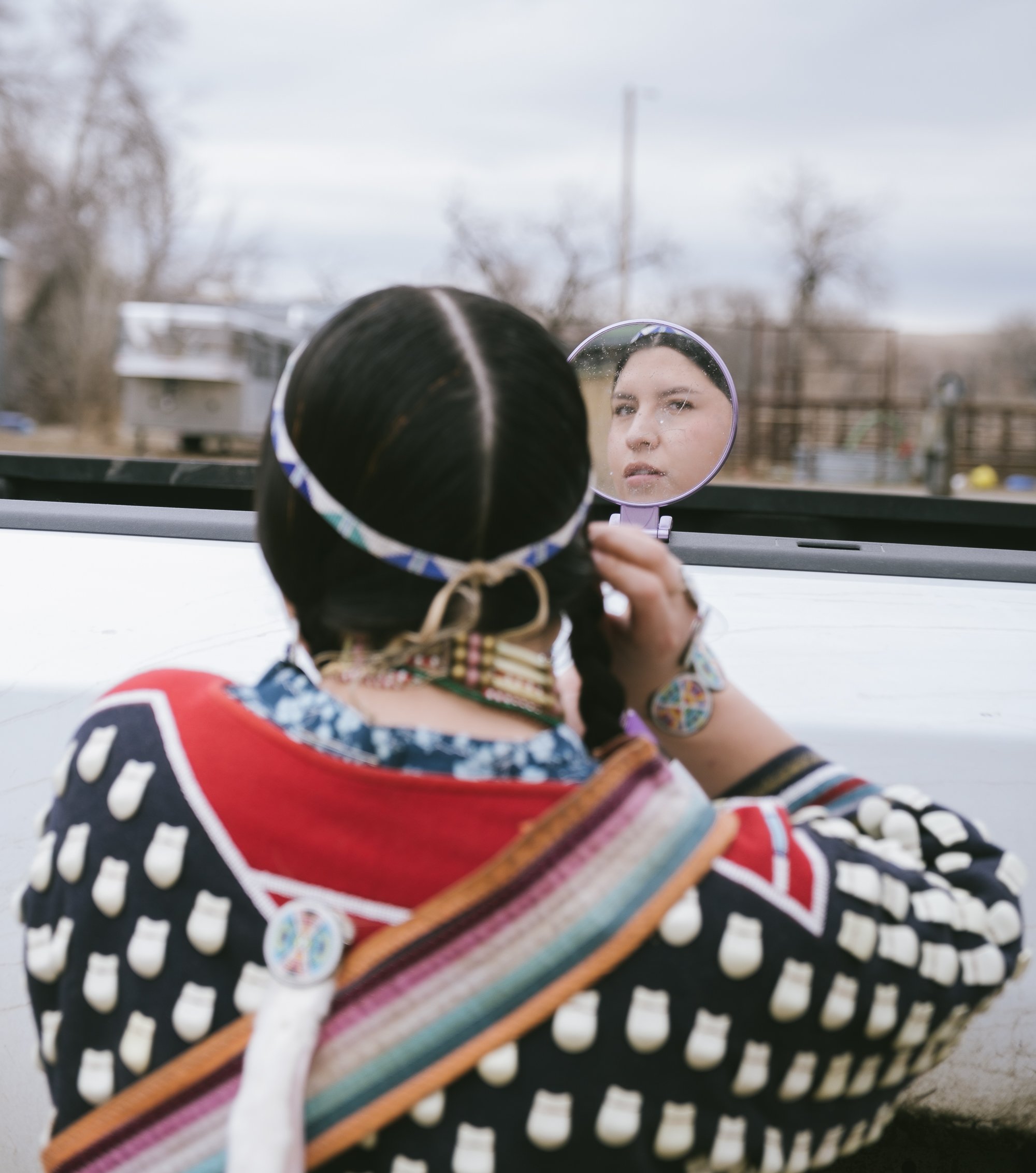
Cailei Cummins, the 2023 Crow Fair Rodeo Queen, gets ready in front of a mirror perched on the back of her moms truck. Cummins takes the morning to dress her horse and herself in Traditional Regalia beaded by her mom and grandmother. She is dressed in a traditional Apsáalooke Elk-tooth dress, passed down by her mother. The Crow fair is an important showcase of Crow culture and an important place for youth to uphold family traditions, held every August.
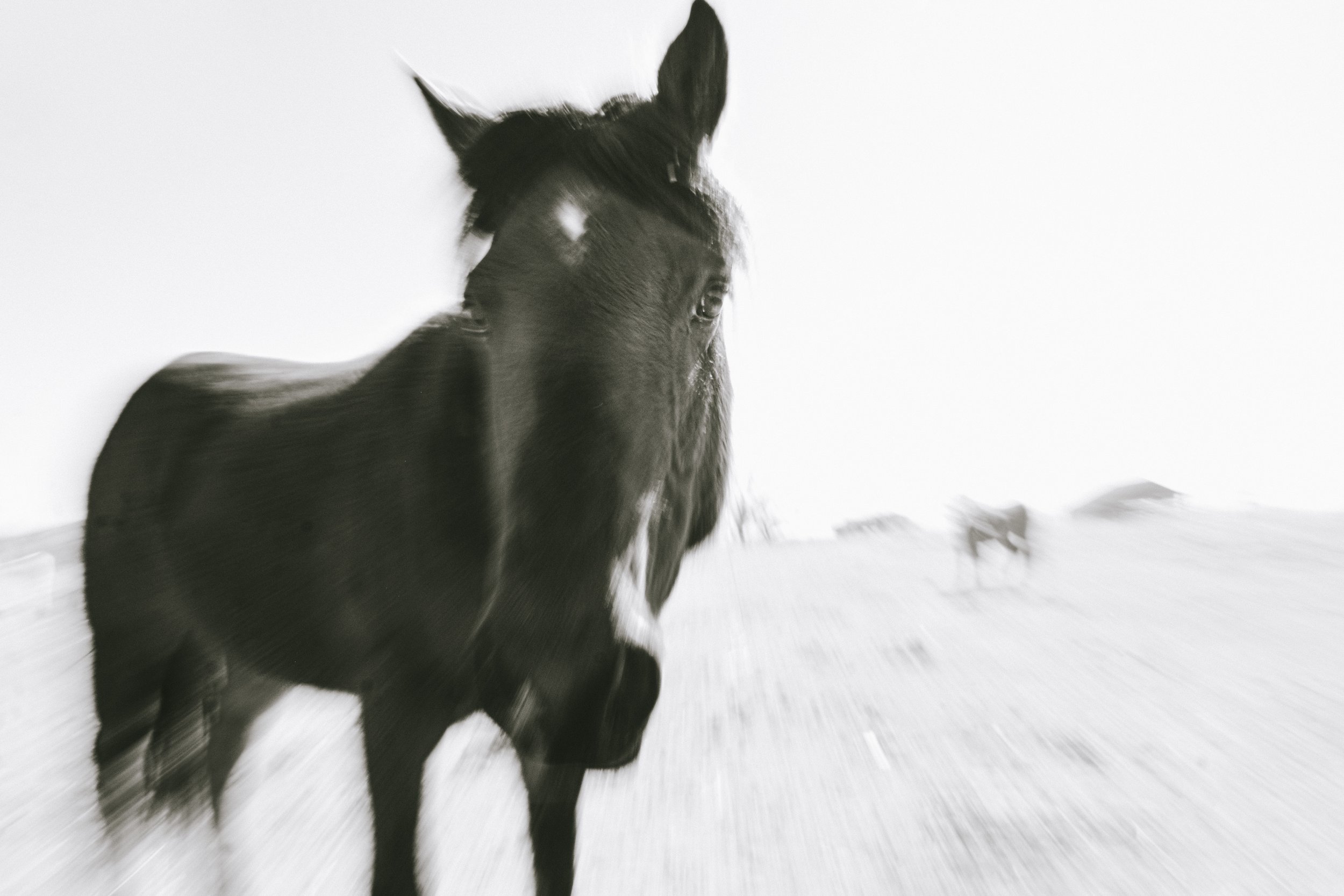
Apsáalooke’s kinship with the horse cultivates connection.

Amber Cummins helps Cailei get ready, before showing her horses. For the annual Crow Fair, the women will typically take hours helping each other get ready to parade their horses. Before getting themselves ready, they will take the time to feed and brush their horses and dress them in regalia. As the families parade their horses at the Crow Fair, each piece of regalia shows the family's wealth.
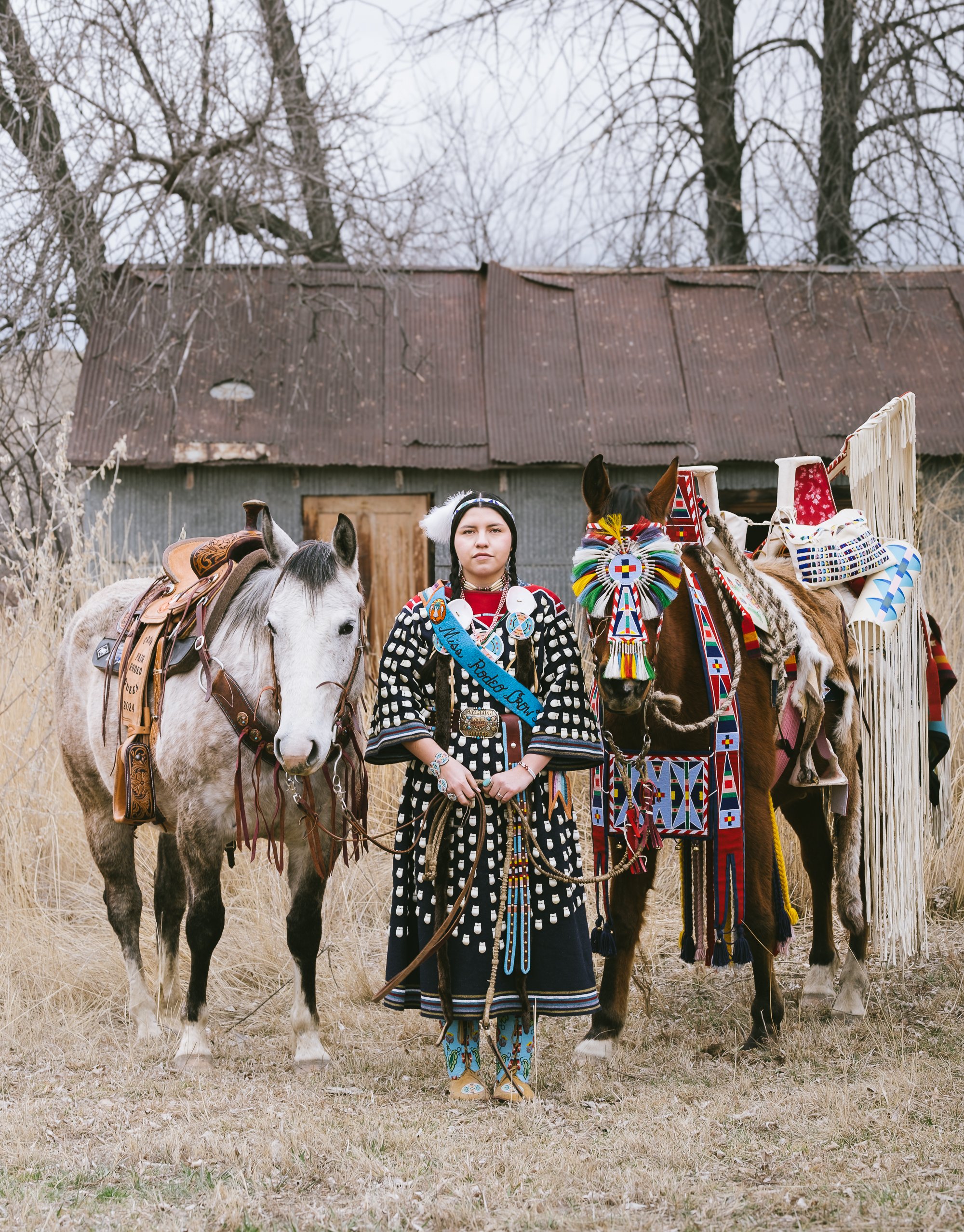
Cailei Cummins stands with the horse she’s had since she was a child, and has been parading with him ever since. Typically the Crow people dress their horses with 18 pieces of Regalia, more pieces than they dress themselves. Each piece has been passed down as family heirlooms that signify different stories in their family. Except for her traditional Apsáalooke Elk-tooth dress, Cailei’s regalia was all made by her grandmother and mother. Some pieces of its intricate beadwork took years to complete.

Amber Cummins braids Cailei’s hair as they get ready to mock parade their horses. Cailei has been parading since she was two years old, following in her moms footsteps. Amber grew up parading, just like Cailei, and would do so at the Crow Fair each summer.

Jade Bends’ youngest son, Canyon Creek, sits on top of their family’s pony, alongside Bends’ niece, Dalley. The Bends children have grown up on horse. Jade says getting outside and playing with the horses is extremely important for how children mature. “I know this will help because it’s very therapeutic,” she said. “For my kids, they go out and ride; it keeps them out of trouble.”
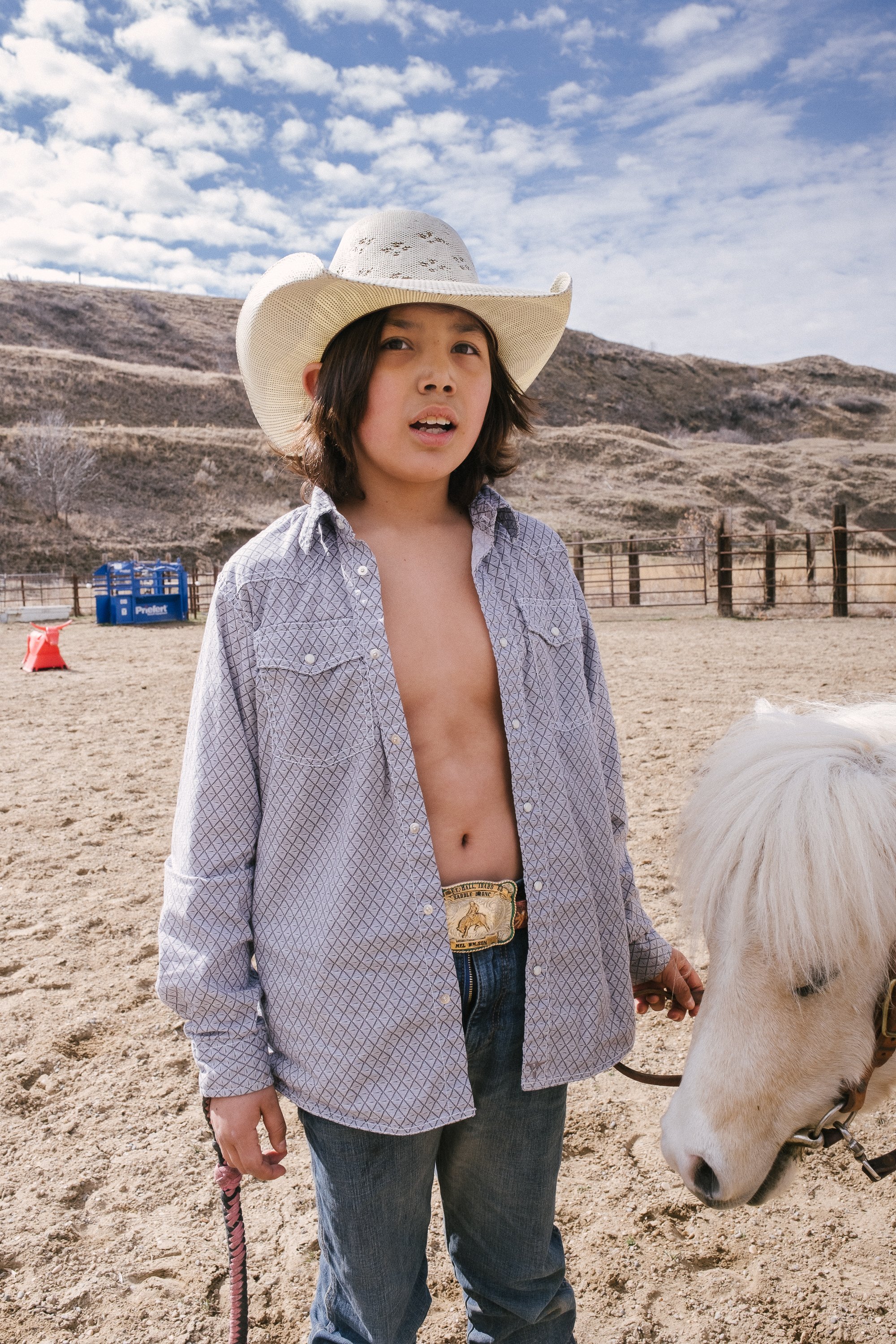
Callen Howe stands near the Bends’ youngest pony. Horses are integral to Crow culture. Though not as many Crow youths are involved with horse and rodeo culture as in the past, it’s still alive in parts of the tribe.
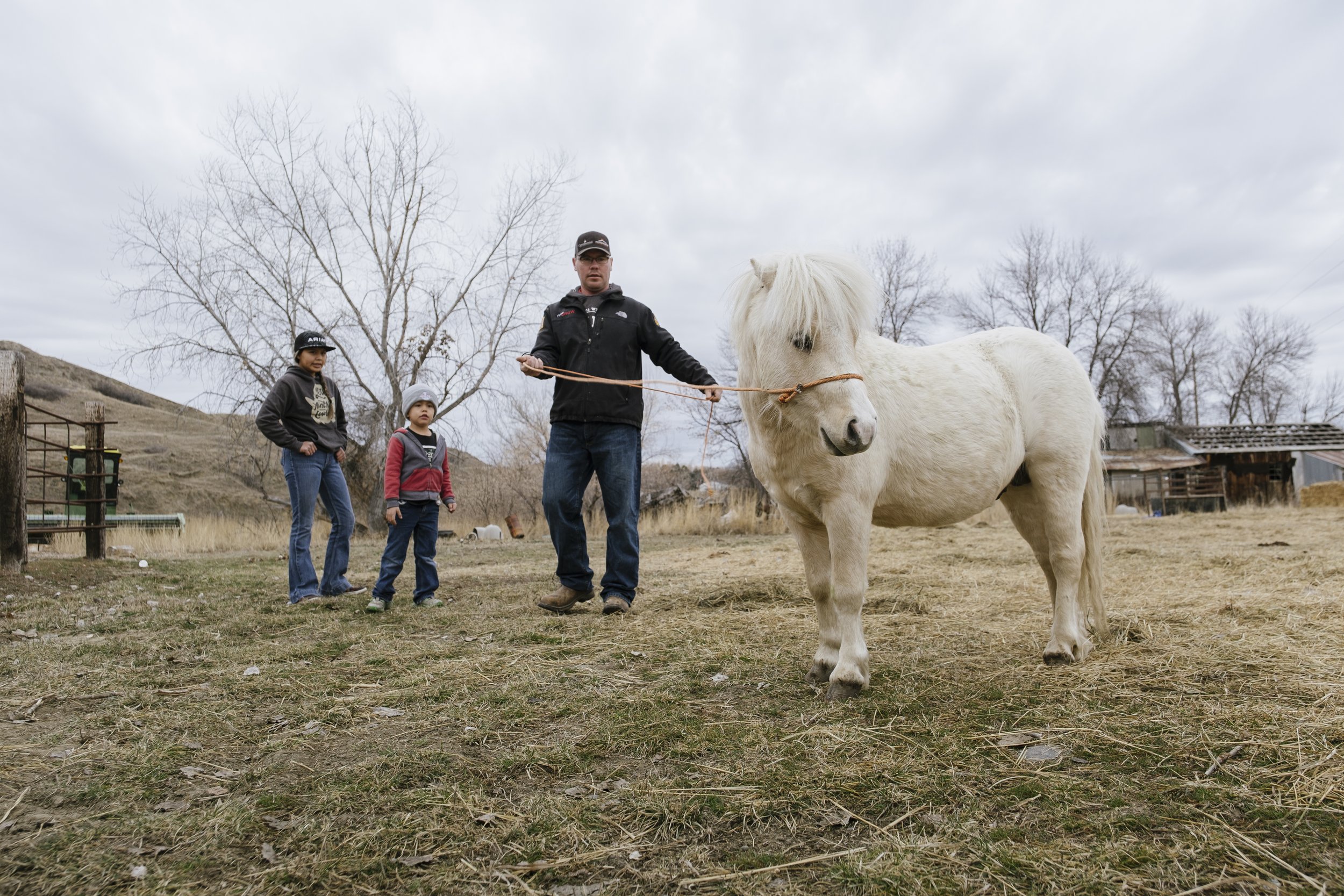
Chaz Bends, husband of Jade Bends, holds their family’s newest pony. Chaz, an active horseman, heads the Big Horn County Search and Rescue on the Crow Reservation. He grew up in Lodge Grass, just 30 minutes from Hardin, and raises his kids with Jade. “In his work, it always comes down to the youth, how they are brought up and how they are raised,” Jade said.
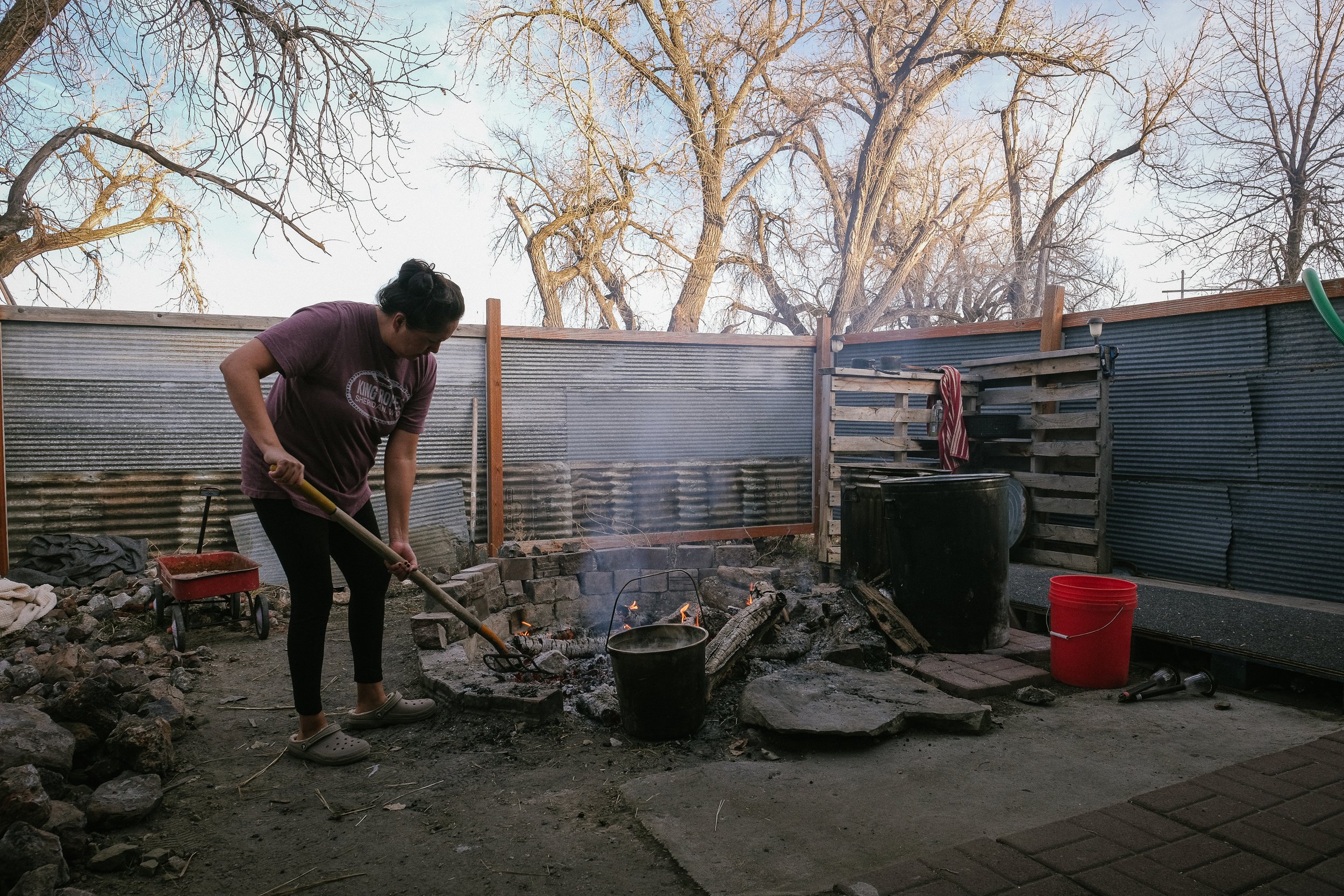
Jade Bends prepares a traditional sweat lodge in the backyard of her home. Sweats are commonly practiced among the Crow Tribe to promote healing practices and to just calm down from busy weeks.
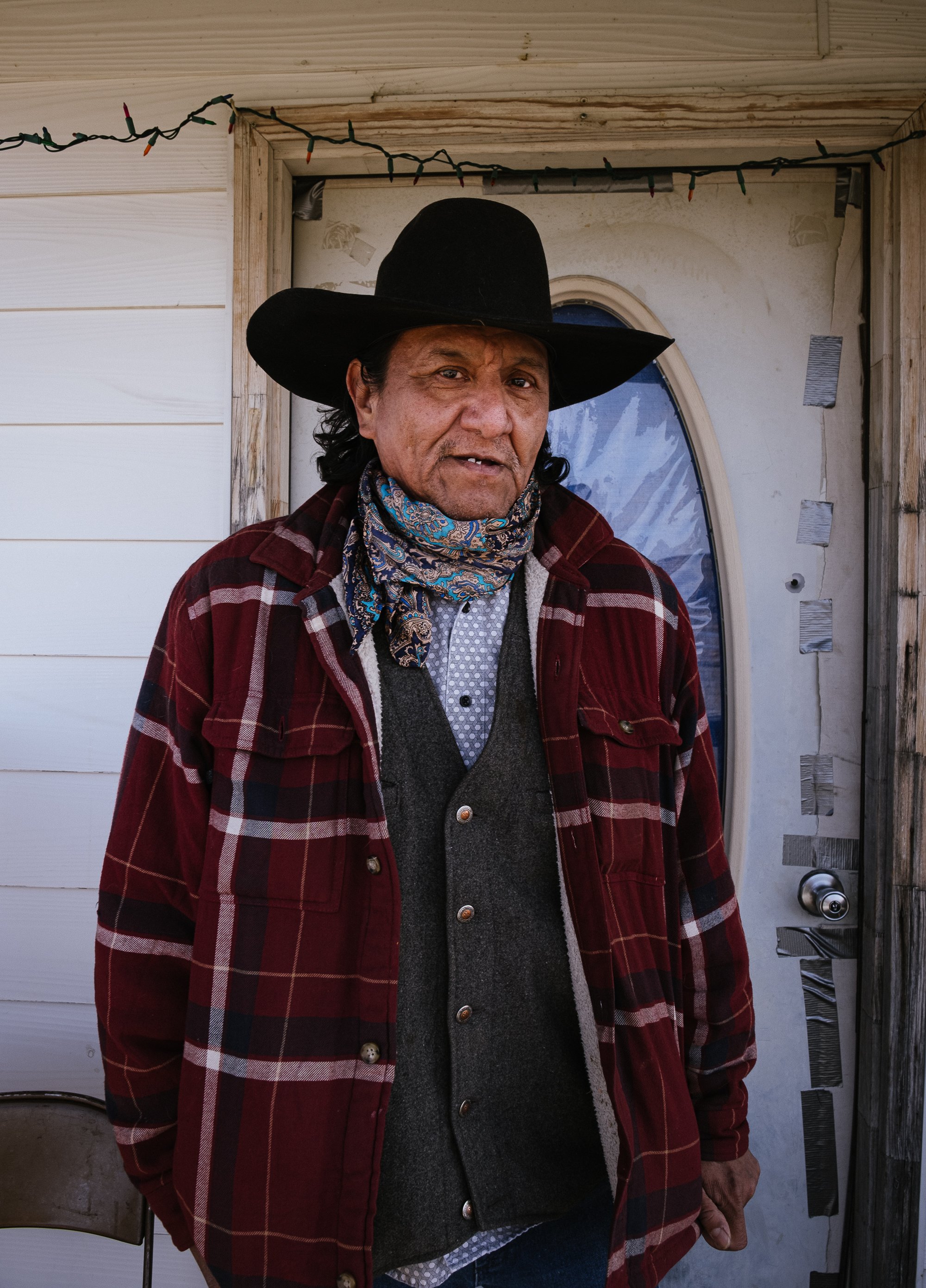
Henry Reed Senior, a former jockey for the Crow Tribe, has been involved with horses and horse racing his entire life. His dad first got him on a racehorse at age 8 at the Crow Fair. Since then, Henry Senior has been hooked on the cowboy lifestyle. “The horse is very sacred for the Crows. That is how we survived,” said Reed.
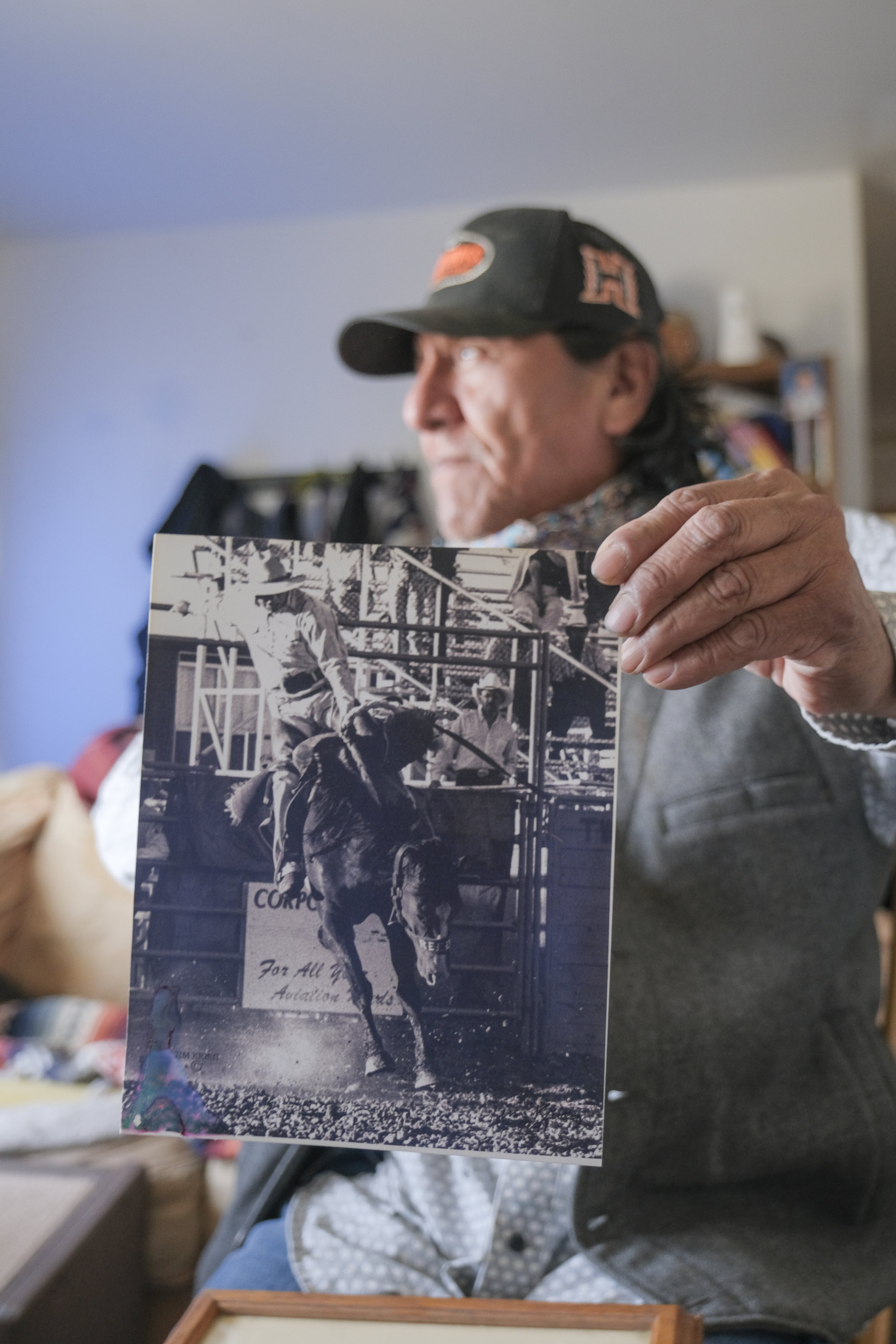
Henry Reed Senior holds a photo of the last time he ever rode, in 1992. He fell off of his horse, breaking his collarbone and ankle. He said riding had always been his life, just as it was for his father, George Reed , who was a big presence among the Crow people.
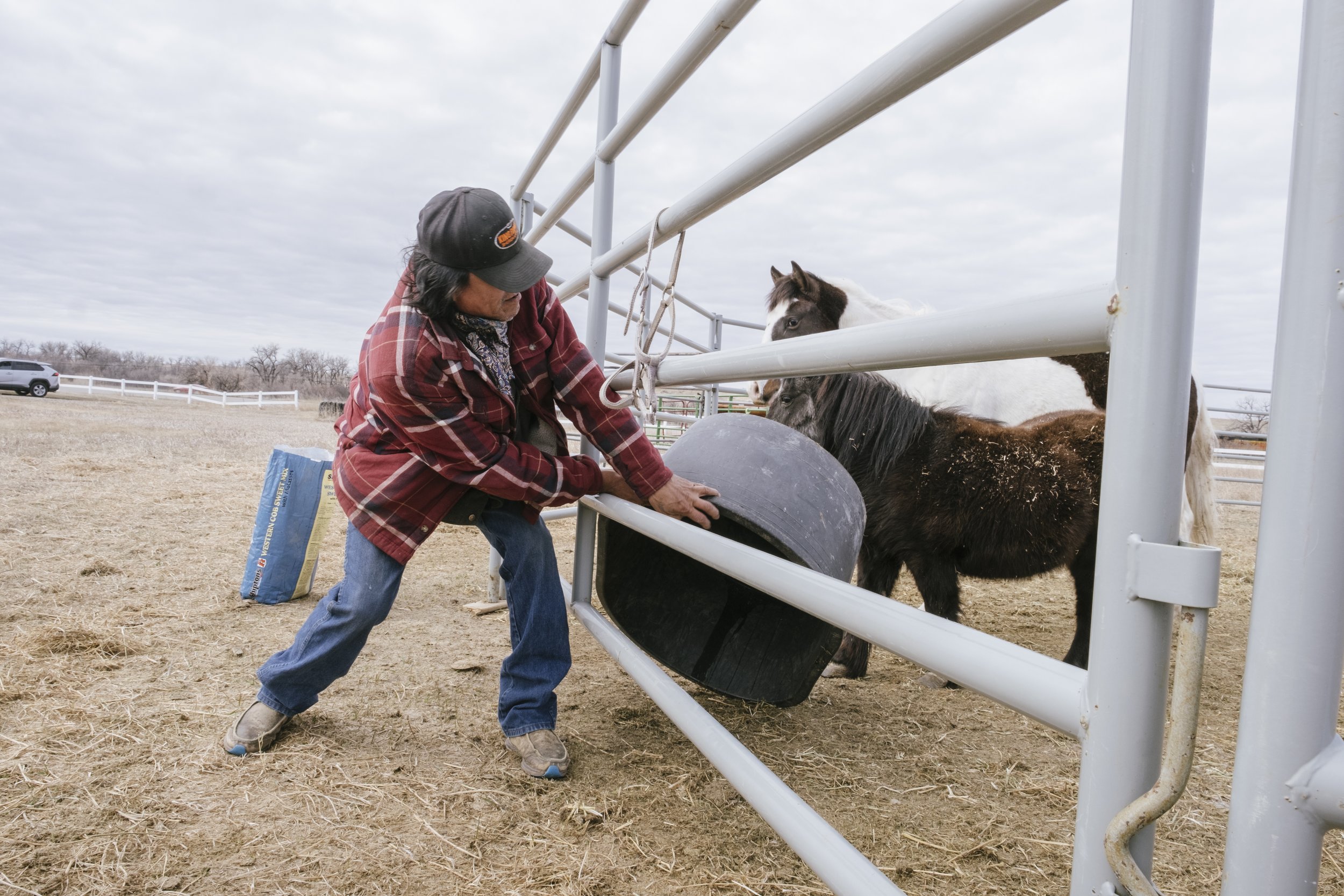
Henry Reed Senior cleans a bucket before filling it to feed his horses. Although Reed and his wife live on a small plot of land, he prioritizes the way he cares for his three horses. “I think we are losing our cultural ways, not just our language, but our beliefs,” he said, especially in the way tribal members care for horses.

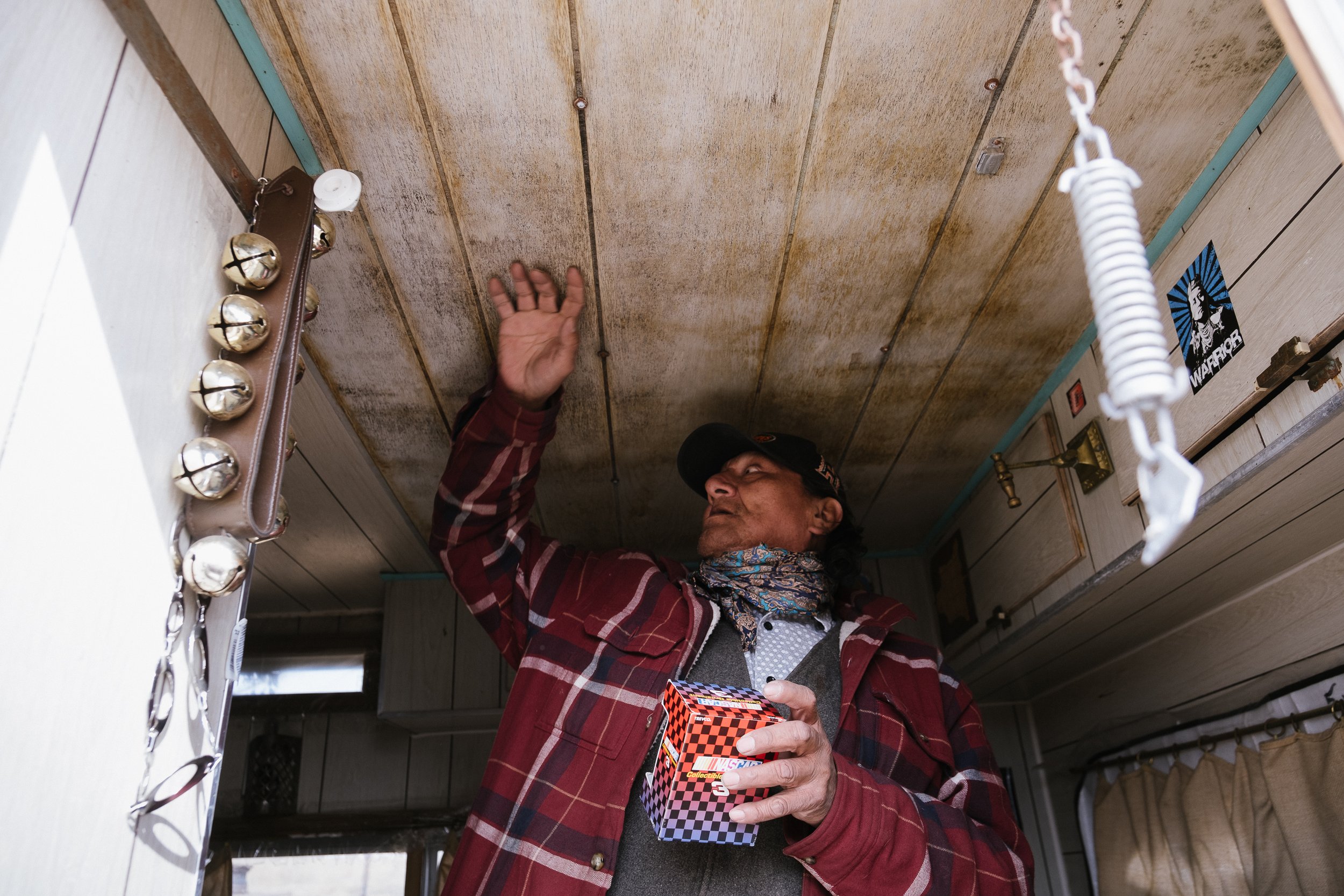
Henry Reed Senior showing off the trailer in his backyard that will eventually be turned into storage for his horses.
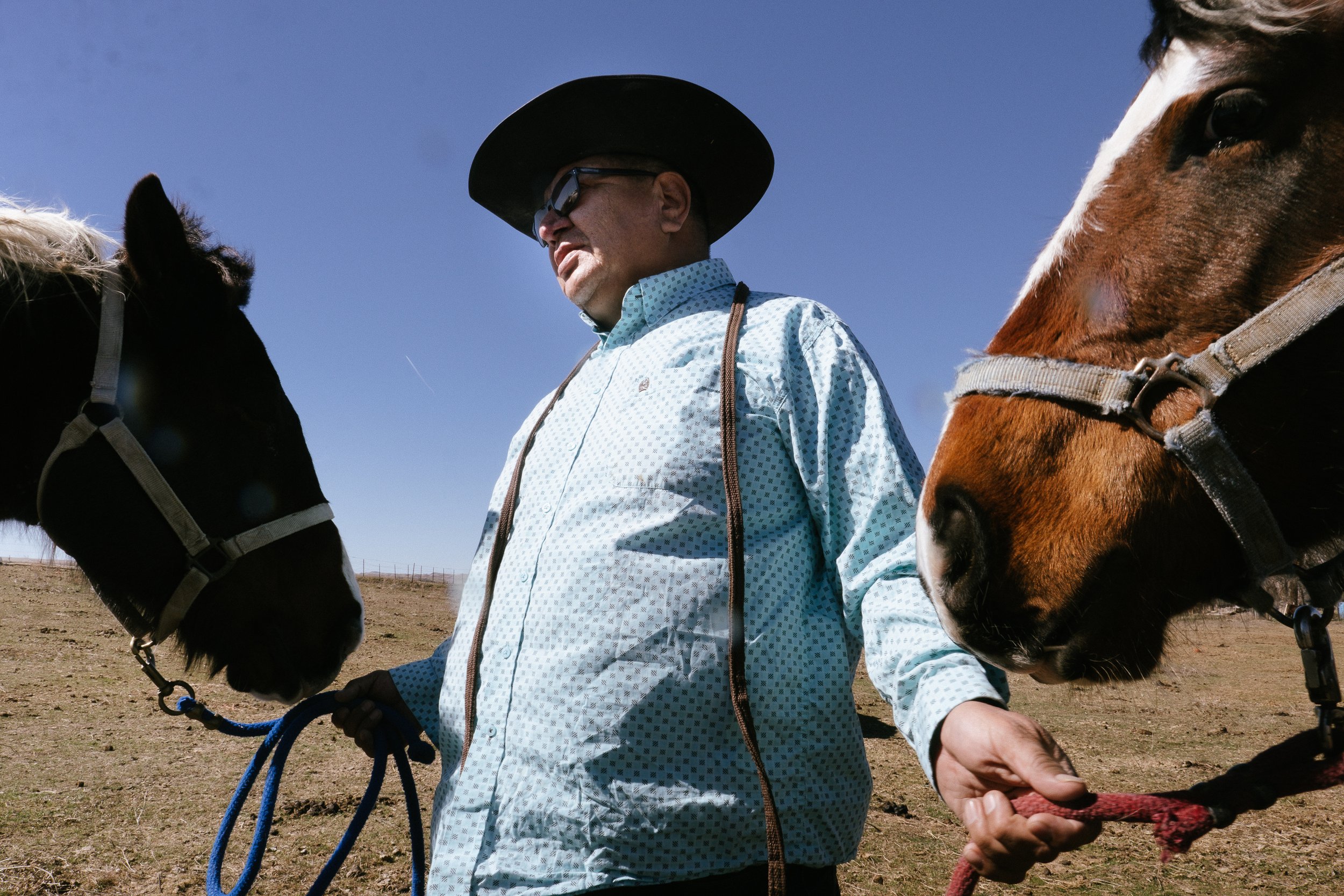
Shawn Real Bird stands beside two of his many horses. Real Bird spends hours a day tending to his horses, including monitoring or interacting with them. He believes the amount of money you have doesn’t determine how rich you are, but how many horses you own. Real Bird lets his horses roam free, up and down the river near his property.
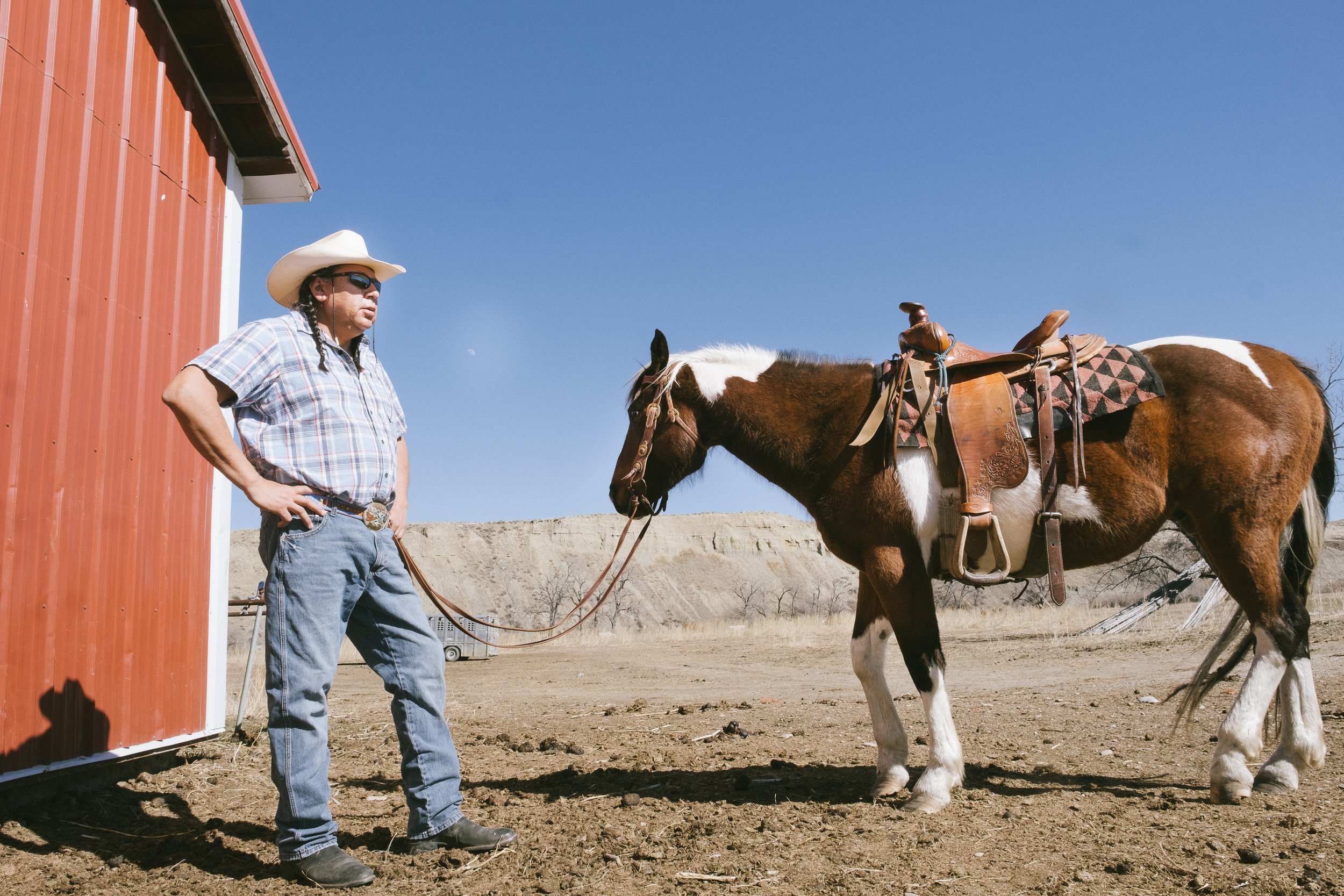
Tim Real-Bird stands with his newest horse, who he has been breaking for the past year. Sometimes breaking horses means to break the spirit of the horse and to assert dominance, while the Crows break their horses to become one and see each other as trusted companions.
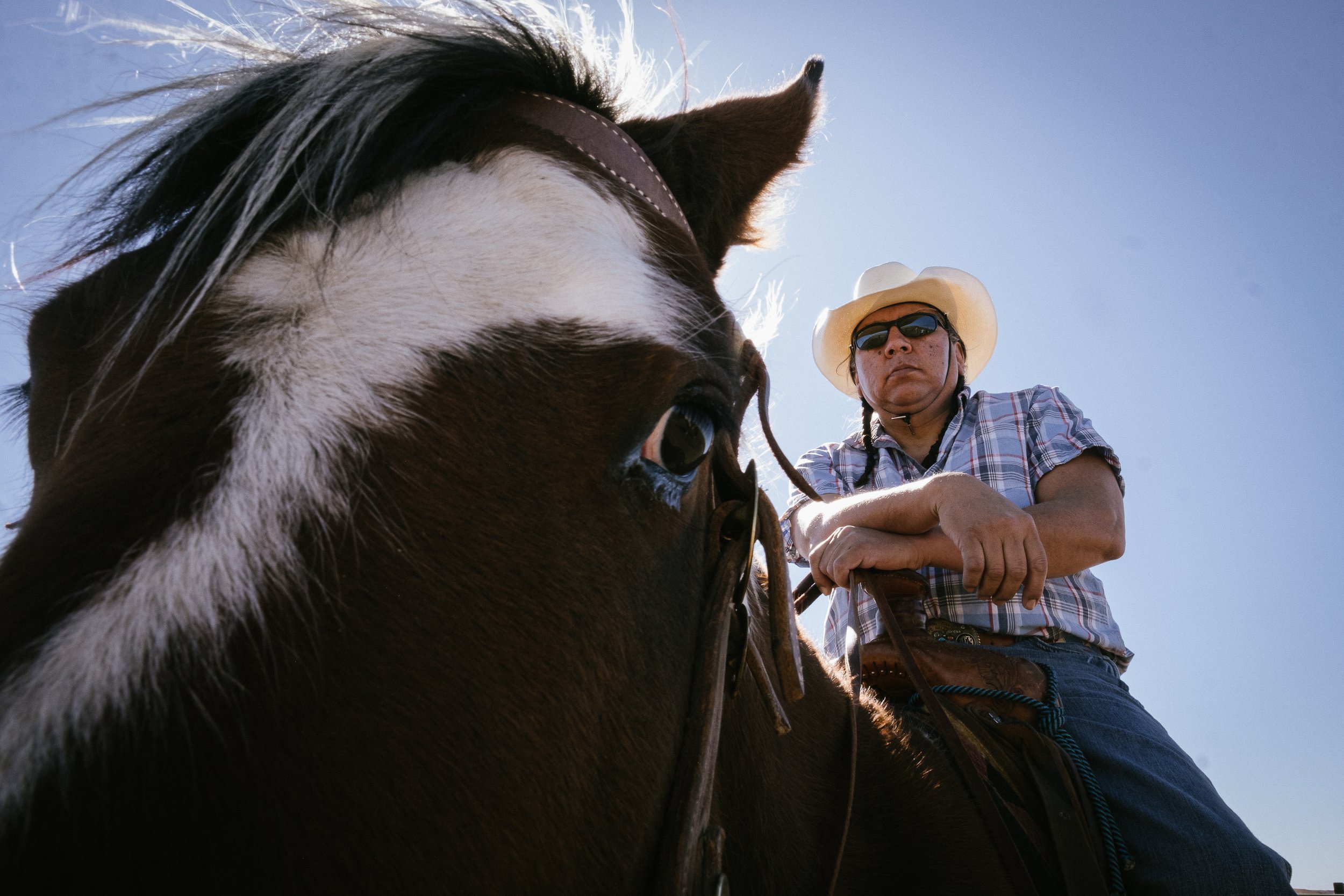
Tim Real Bird, 58, sits calmly upon his newest horse, young paint, one he’s been breaking for the past year. The horse stays at the home of his brother, Shawn Real Bird. The Real Bird brothers have grown up with horse songs and Indian medicine that have shown good spirit and experience with the horse.

The River Road Relay, an Indian Relay team, practices once a week. Cody Pickett has been doing Indian relay races for nine years, and everyone has been around this their entire lives. Indian Relay keeps the youth involved with horse culture and strengthens their identity.
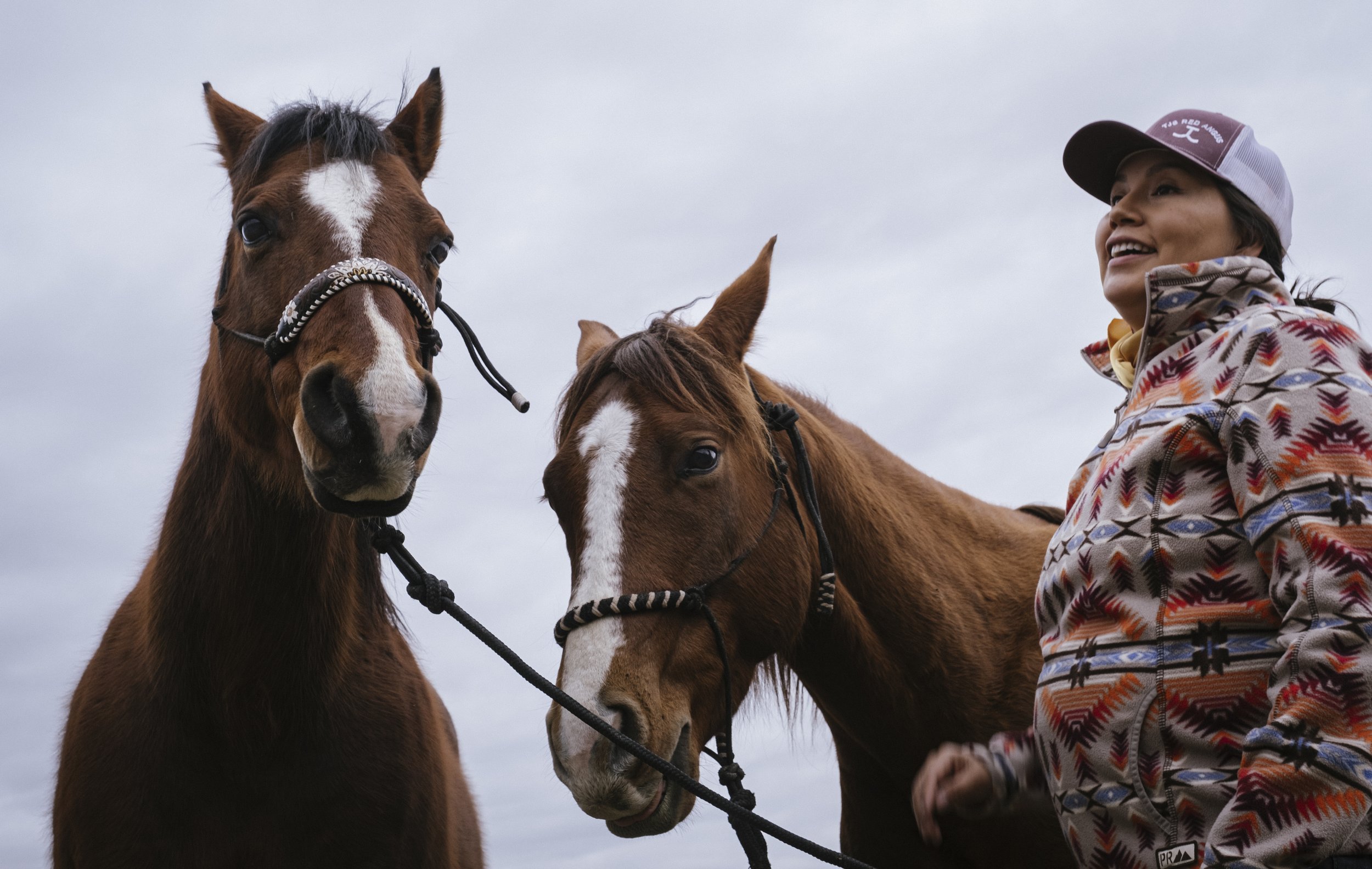
Jade Bends with two of her many horses.
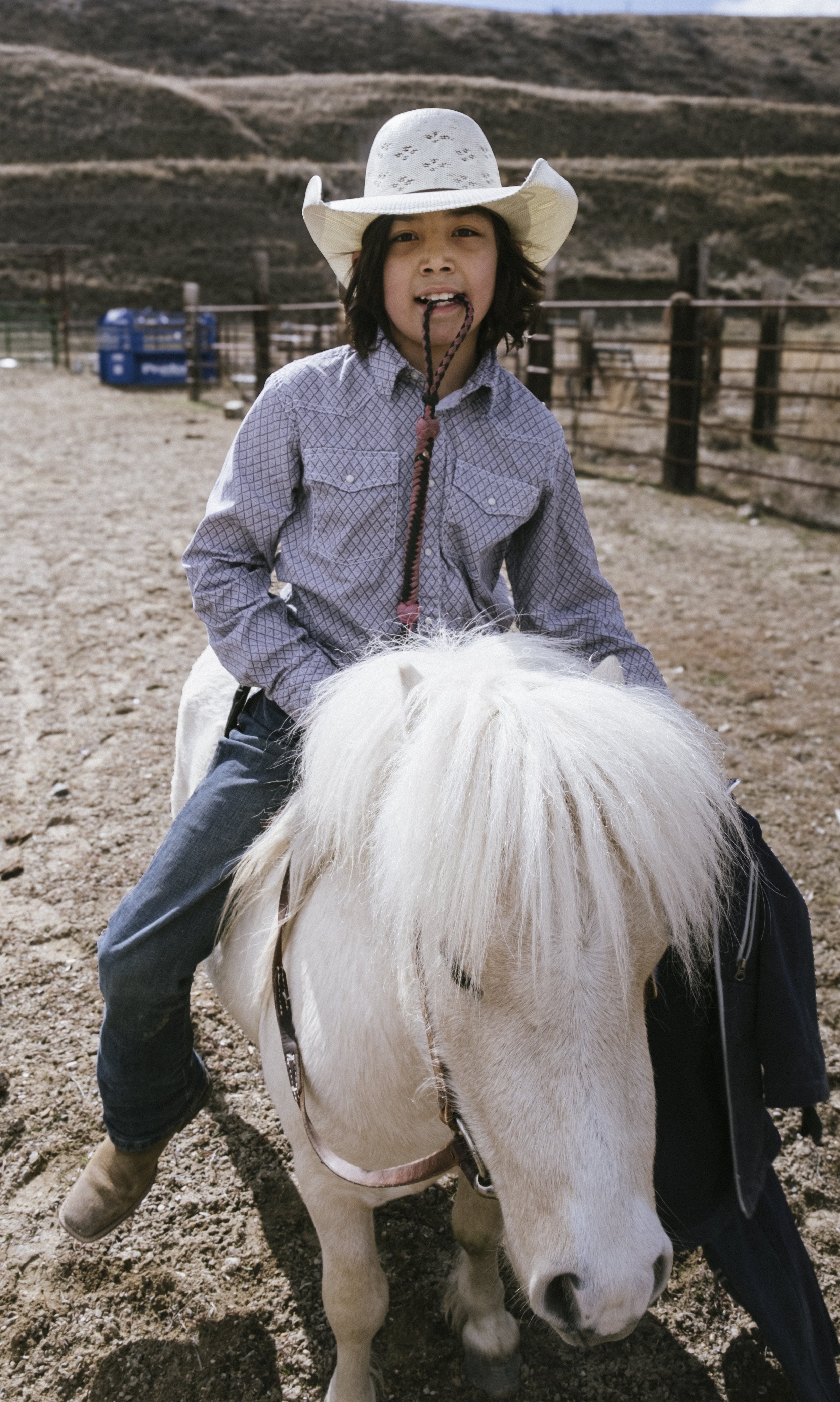
Callen Howe sits on the Bends youngest pony with the rein in his mouth. Horses are said to be part of the Crow culture, but ultimately some thing its woven in their DNA. The youth have not been as involved with horse and rodeo culture as in the past, but its still alive in parts of the tribe.
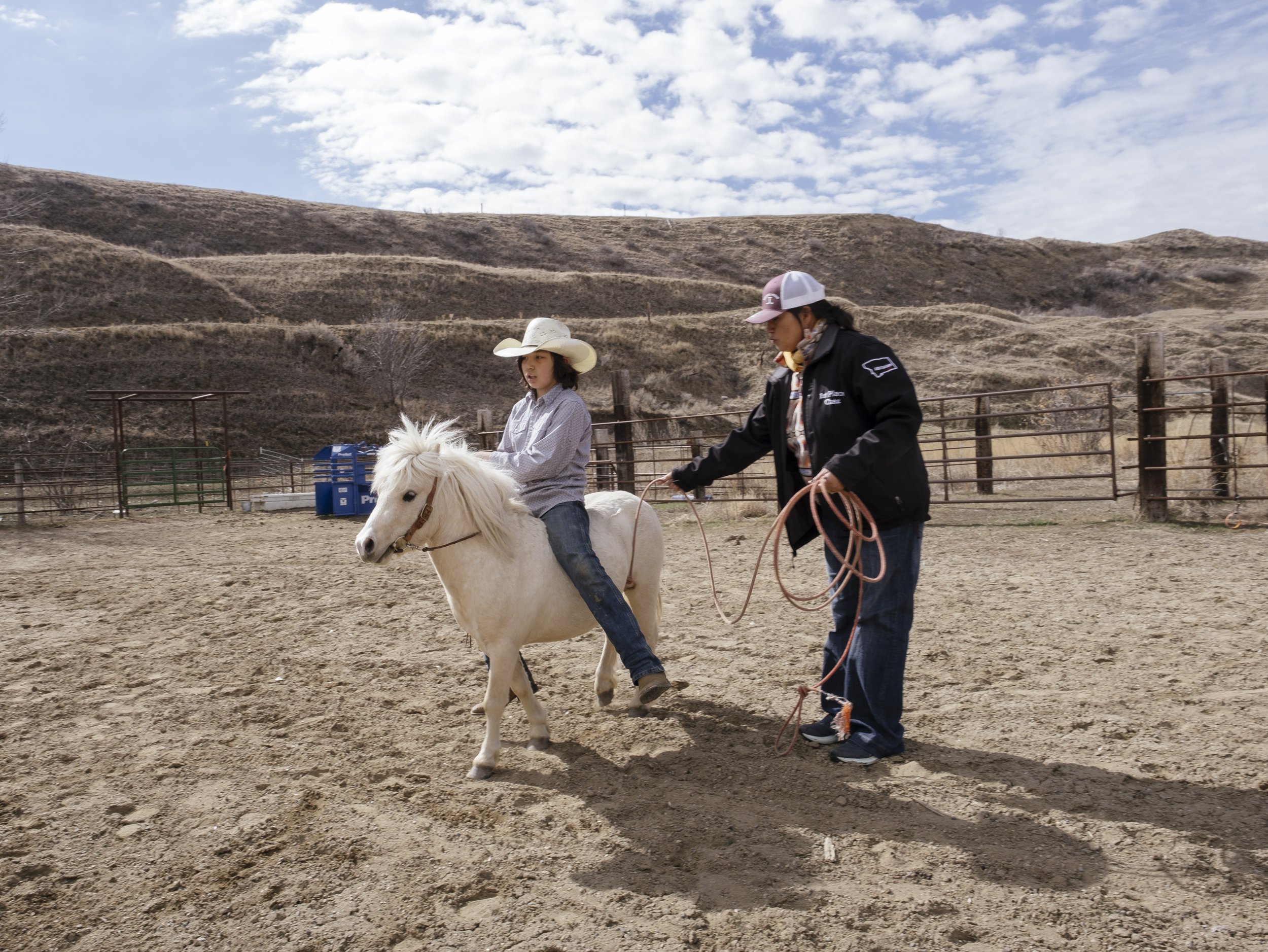
Jade Bends shows her son’s friend, Callen Howe, how to race his pony bareback. Bends is the 2024 Crow Fair rodeo manager, who says youth rodeo helps children mature and become more involved in their culture. She also runs a youth rodeo clinic called “Young Guns Youth Roughstock Clinic. However, not all children on the reservation are as lucky as Bends’ children, who have grown up with horses.